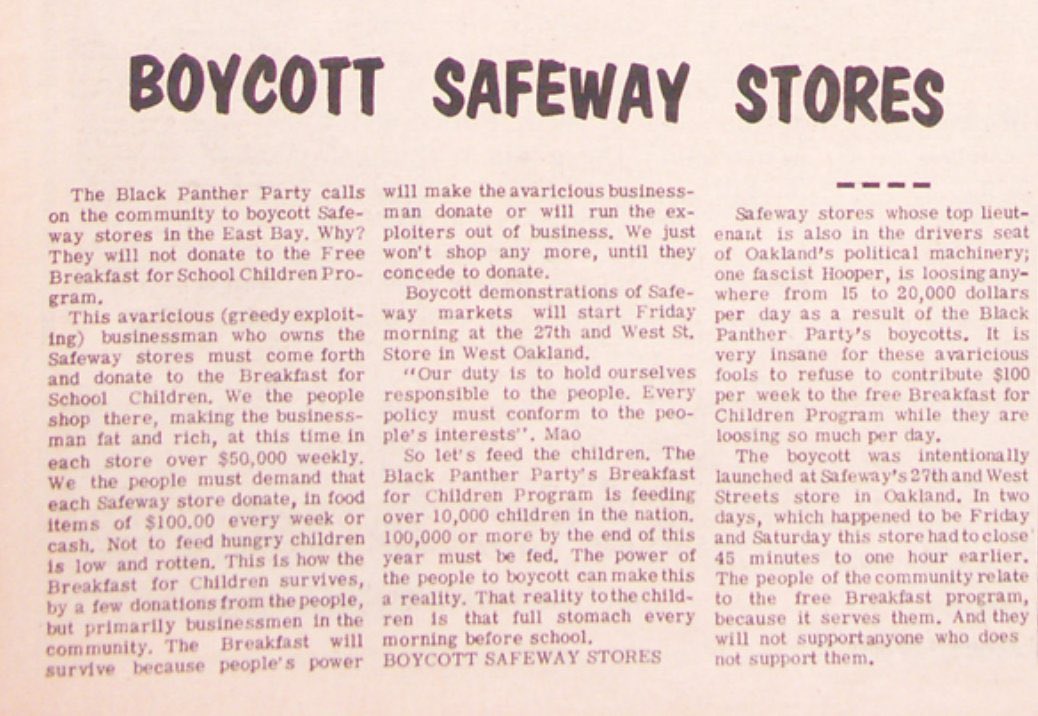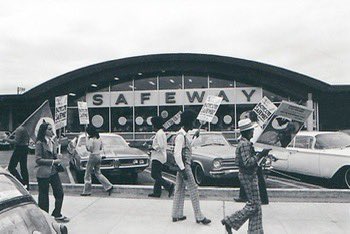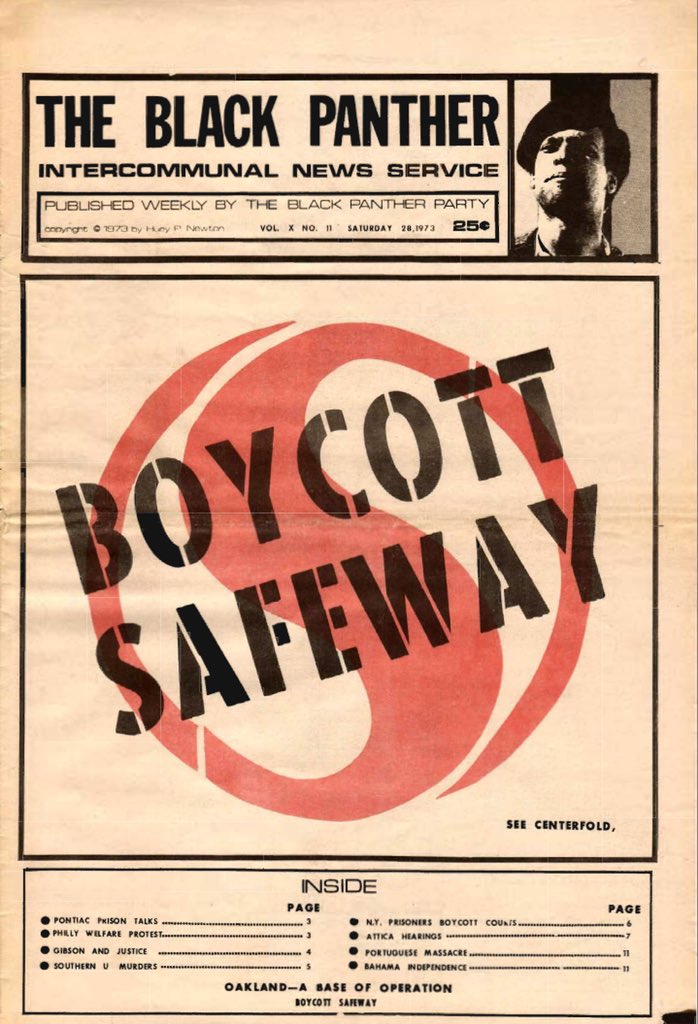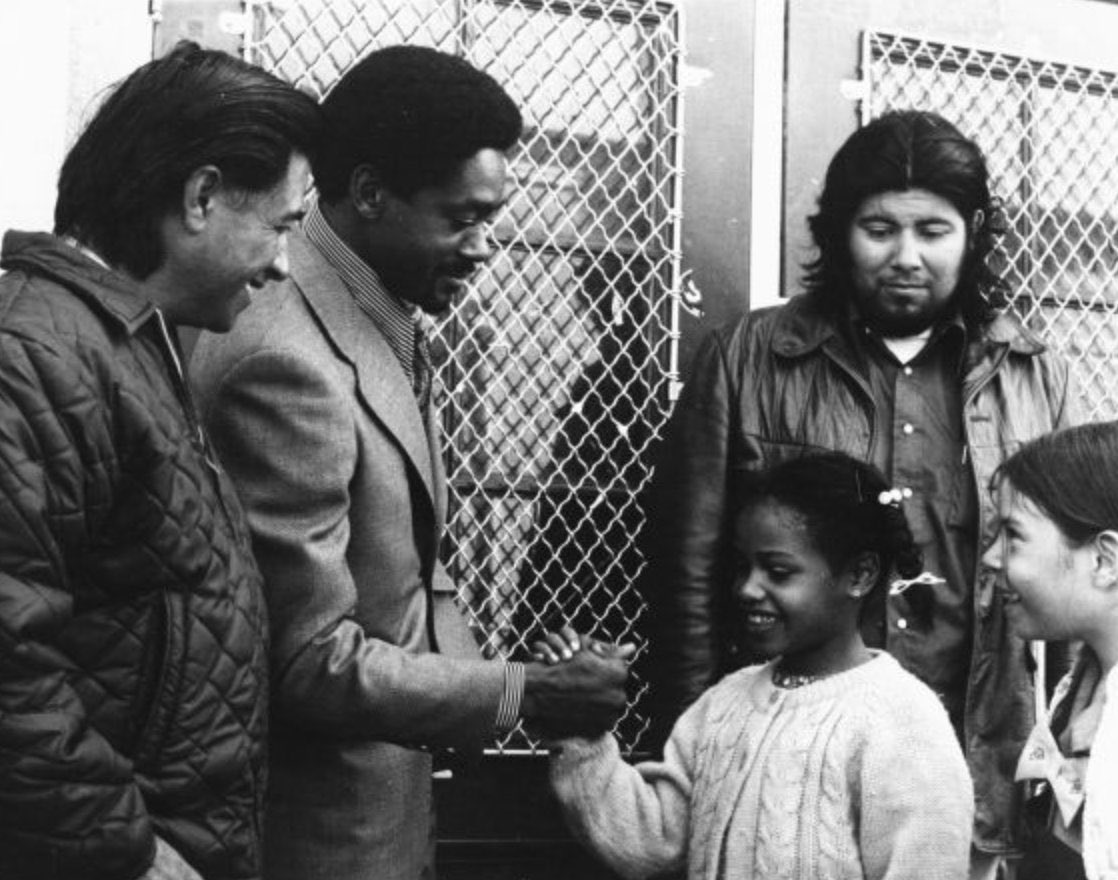June 14, 1969: Black Panther Party Calls for East Bay Safeway Boycott
June 14 1969, the Black Panther Party published a call in their party paper to boycott East Bay Safeway grocery stores, which had refused to donate food to the party’s Free Breakfast program, in solidarity with the United Farm Workers boycott of Safeway.
The boycott solidified a growing coalition between the BPP and the UFW and had immediate effects on several stores in the East Bay. Many opted not to sell grapes to avoid a Panther picket line. The BPP-UFW boycott soon forced the Safeway at 27th and West to close.
As early as ‘68, the Panthers made efforts to align with the UFW. In solidarity with the grape boycott, the party banned the consumption of their official drink, known as the “Bitter Dog” or “Panther Piss,” made with filtered lemon juice and Italian Swiss Colony red wine.
The favorite drink of Lil Bobby Hutton, the Bitter Dog was made the official party drink in his honor after he was murdered. At a speech at the Berkeley Community Center in Dec. 1968, Eldridge Cleaver said that the ban was in support of “our brothers,” the striking farm workers.
Panther support for the UFW continued throughout the following years, with updates on boycotts and solidarity pickets published in the Black Panther. UFW boycott committees also supported local Panther chapters, particularly after the killings of Mark Clark and Fred Hampton.
In Portland, UFW members rallied to support the local Panther chapter after fears of an FBI raid on their office emerged. And in Seattle, on February 28, 1970, UFW members joined a rally in defense of the Panthers who were expecting an imminent ATF raid.
In ‘73, as Panthers launched new pickets of all Safeway stores, Ceaser Chavez came to Oakland to participate in a rally for Bobby Seale’s mayoral campaign. They walked the streets together campaigning for Seale and spent part of the day greeting students at Malcolm X elementary.
The Panther-UFW coalition was one among many of the BPP’s efforts to align with labor. Elevating UFW boycotts and linking the Black revolutionary movement to farm worker power in California, their efforts left an indelible mark on the landscape of political struggle in the Bay.




